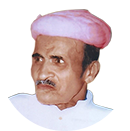Vision
To prepare Electronics & Telecommunication Engineers for the benefit of the society.
Mission
1. To provide quality education to students2. To enrich the skill in collaboration with industry for better career opportunity3. To inculcate ethics, values and environment awareness
Program Educational Objectives (PEOs)
PEO1Have a successful professional career in Electronic and Communication Engineering and related fieldsPEO2Apply the knowledge of electronics engineering to solve challenges faced by industry and nation.PEO3:Demonstrate leadership qualities with professional and ethical practices.PEO4Adopt to changing professional and societal needs and Engage in lifelong learning
Program Outcomes (POs)
Engineering Graduates will be able to:PO1Engineering Knowledge: Apply the knowledge of mathematics, science, engineering fundamentals, and an engineering specialization to the solution of complex engineering problems.PO2Problem Analysis - Identify, formulate, review research literature, and analyze complex engineering problems reaching substantiated conclusions using first principles of mathematics, natural sciences, and engineering sciences.PO3Design/ Development of solutions - Design solutions for complex engineering problems and design system components or processes that meet the specified needs with appropriate consideration for the public health and safety, and the cultural, societal, and environmental considerations.PO4Conduct Investigations of Complex problems - Use research-based knowledge and research methods including design of experiments, analysis and interpretation of data, and synthesis of the information to provide valid conclusions.PO5Modern Tool Usage - Create, select, and apply appropriate techniques, resources, and modern engineering and IT tools including prediction and modeling to complex engineering activities with an understanding of the limitations.PO6The Engineer and Society - Apply reasoning informed by the contextual knowledge to assess societal, health, safety, legal and cultural issues and the consequent responsibilities relevant to the professional, engineering practice.PO7Environment and Sustainability - Understand the impact of the professional engineering solutions in societal and environmental contexts, and demonstrate the knowledge of, and need for sustainable development.PO8Ethics - Apply ethical principles and commit to professional ethics and responsibilities and norms of the engineering practice.PO9Individual and Team Work - Function effectively as an individual, and as a member or leader in diverse teams, and in multi-disciplinary settings.PO10Communication - Communicate effectively on complex engineering activities with the engineering community and with society at large, such as, being able to comprehend and write effective reports and design documentation, make effective presentations, and give and receive clear instructions.PO11Project Management and Finance - Demonstrate knowledge and understanding of the engineering and management principles and apply these to one's own work, as a member and leader in a team, to manage projects and in multi-disciplinary environments.PO12Life-Long Learning - Recognize the need for, and have the preparation and ability to engage in independent and life-long learning in the broadest context of technological change.
Program Specific Outcomes (PSO's):
PSO1Apply their skills in designing, implementing and testing electronic systemsPSO2Demonstrate proficiency in use of modern electronic design automation (EDA) toolsPSO3Communicate and work effectively as individuals and as team members
PROFILE
- The Department of Electronics and Telecommunication Engineering was established in 2004
- The department promotes various co-curricular and extracurricular activities to the bridge the gap between Academia-Industry. Students Forum like ISF and other associations provides the platform for personality development.
- The Department believes in better Industry Institute interaction and organises various activities to enhance hands on skills. Department has active MoU to serve this purpose.
- The department has fetched fundings from numerous government/Non Government funding agencies
PROGRAM
UG Programme: : Electronics & Telecommunication EngineeringSanction Intake : 60Duration: 4 YearsCourse Code: 517337210

